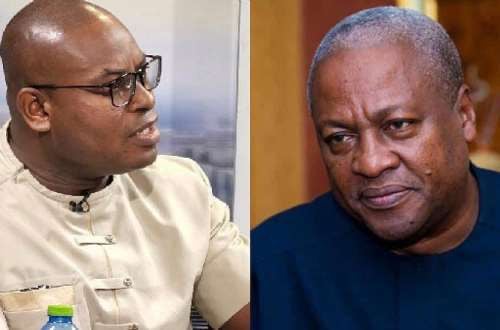Richard Ahiagbah, the National Communications Director of the New Patriotic Party (NPP), has launched a critique of the perceived disconnect between Ghana’s improving economic indicators and the tangible realities faced by its citizens. He argues that despite reported economic growth exceeding 5% in the first half of the year and a significant appreciation of the cedi, the average Ghanaian has yet to experience any corresponding improvement in their living conditions. Ahiagbah contends that mere favorable economic figures are meaningless if they fail to translate into a better quality of life for ordinary people, emphasizing the rising cost of living and unemployment as pressing concerns that overshadow the government’s touted economic achievements. He stresses that a budget surplus, as highlighted in the Finance Minister’s mid-year review, holds little value if it doesn’t lead to tangible improvements in job creation and a reduction in the financial burdens faced by Ghanaians.
Ahiagbah’s argument centers on the disparity between the government’s narrative of economic progress and the lived experiences of the populace. He questions the value of a budget surplus when unemployment remains a significant challenge, citing the plight of unemployed nurses and other professionals as evidence of the disconnect. He underscores the importance of aligning economic policy with the needs of the people, emphasizing that a true measure of economic success lies not in statistical achievements but in the tangible impact on citizens’ lives. He further challenges the government’s focus on macroeconomic indicators, arguing that these figures hold little relevance for individuals struggling with the daily realities of rising costs and limited job opportunities.
The NPP spokesperson directly addresses President John Mahama, highlighting the government’s failure to deliver on its promises of economic improvement. He reminds the President of his 2024 campaign rhetoric, which centered on improving the lives of ordinary Ghanaians, and contrasts it with the current situation where citizens are grappling with increasing economic hardship. Ahiagbah’s statements reflect a broader sentiment of skepticism and frustration among Ghanaians who are yet to see the promised benefits of economic growth. He effectively articulates the public’s demand for tangible results, emphasizing that economic progress should be measured by its impact on the lives of ordinary citizens, not just by abstract economic indicators.
Ahiagbah underscores the urgency of addressing the rising cost of living and unemployment, arguing that these are the issues that resonate most with the average Ghanaian. He calls for a shift in focus from macroeconomic achievements to policies that directly address the economic challenges faced by the population. He draws attention to the growing disconnect between the government’s economic narrative and the lived experiences of the people, suggesting that this disconnect could have significant political implications. He frames the issue not merely as an economic debate but as a matter of fulfilling the promises made to the electorate, implying that the government’s credibility is at stake if it fails to address these concerns effectively.
The core of Ahiagbah’s critique lies in the assertion that economic policy should prioritize the well-being of the citizenry. He implicitly criticizes the government for placing too much emphasis on achieving favorable economic indicators while neglecting the practical impact on the lives of ordinary Ghanaians. He argues that a true measure of economic success lies in the ability to create jobs, reduce the cost of living, and improve the overall quality of life for the population. His statements serve as a call for greater accountability and a demand for policies that directly address the needs of the people rather than focusing solely on abstract economic targets.
By highlighting the disconnect between economic figures and lived experiences, Ahiagbah effectively articulates a potent political message that resonates with the concerns of many Ghanaians. He frames the issue as a betrayal of the promises made during the 2024 election campaign, portraying the government as out of touch with the realities faced by ordinary citizens. His critique serves as a reminder that economic progress should be measured not just by statistics but by the tangible improvements in the lives of the people, emphasizing the importance of aligning economic policy with the needs and aspirations of the population.


